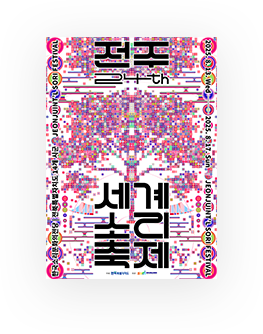d-day
D
-
26


2025. 8. 13. Wed - 2025. 8. 17. Sun

50 Minute
Pay
Suitable for ages 8 years and older
Music from the Roots that is Newly Created and Dispersed
Experiencing Diaspora through Yanggeum and Sinminyo-byeongchang
The 2025 Jeonju International Sori Festival focuses on the diasporic nature of music, which lies in the musical identity or rootedness that becomes recreated through the addition of diversity yielded by its migration and exchange. “Yoon Eunhwa’s Yanggeum Road” and “Ji Sunja’s Simminyo-byeongchang” at the Sori Festival offers an experience of this diasporic aspect of music. The journey of the yanggeum to Korea, and the sinminyo (lit. new-folksong) performance that carries on the folksong tradition by Ji Younghee and Seong Geumyeon will be enjoyed at this year's Festival.
New Folksongs of Ji Yeonghee and Seong Geumyeon Handed down to Ji Sunja
A Profound Resonance Where the Sensibilities of the Past and the Present Meet
Master Suimdang Jo Soonja presents a special performance centered on sinminyo (lit. new folksongs) at the 2025 Jeonju International Sori Festival, showcasing the legacy she inherited from her parents, Ji Yeonghee and Seong Geumyeon. Sinminyo refers to folk songs created by composers and lyricists since the beginning of the 20th century when the recording industry became developed. These were widely beloved during the Japanese colonial era and post-liberation period, and have been passed down in various forms.
Master Ji Sunja has preserved the historical and musical value of sinminyo, consistently performing those songs passed down from her parents on stage. The festival performance aims to go beyond the representation of original form, reinterpreting the sensibilities and melodies of the era in a modern way to revive the nostalgia of that past time.
The performance consists of nine new folksong pieces – The first section features pieces composed after liberation by master Ji Yeonghee and Seong Geumyeon, including gayageum byeongchang (singing with instrument playing) and pieces used for dance accompaniment. The second section includes sinminyo pieces that were popular among professional singers during the Japanese colonial era and then transformed into traditional folk dance music using traditional rhythmic patterns by master Ji Yeonghee.
The stage will consist of a gayageum (12-string, 25-string, and iron-stringed gayageum), violin, piri, saenghwang, percussion. Sinminyo pieces will performed in the form of gayageum byeongchang and hanyanghapju (ensemble with Korean and Western instruments). In addition, the commentary will be provided by Lee Soyeong, a music critic specializing in sinminyo. She will explore the historical significance of sinminyo through the conversation with master Ji Sunja, and provide insightful explanations of the performed pieces. This stage will reintroduce the beauty and value of sinminyo, evoking nostalgia for the past while offering a new discovery for younger generations.